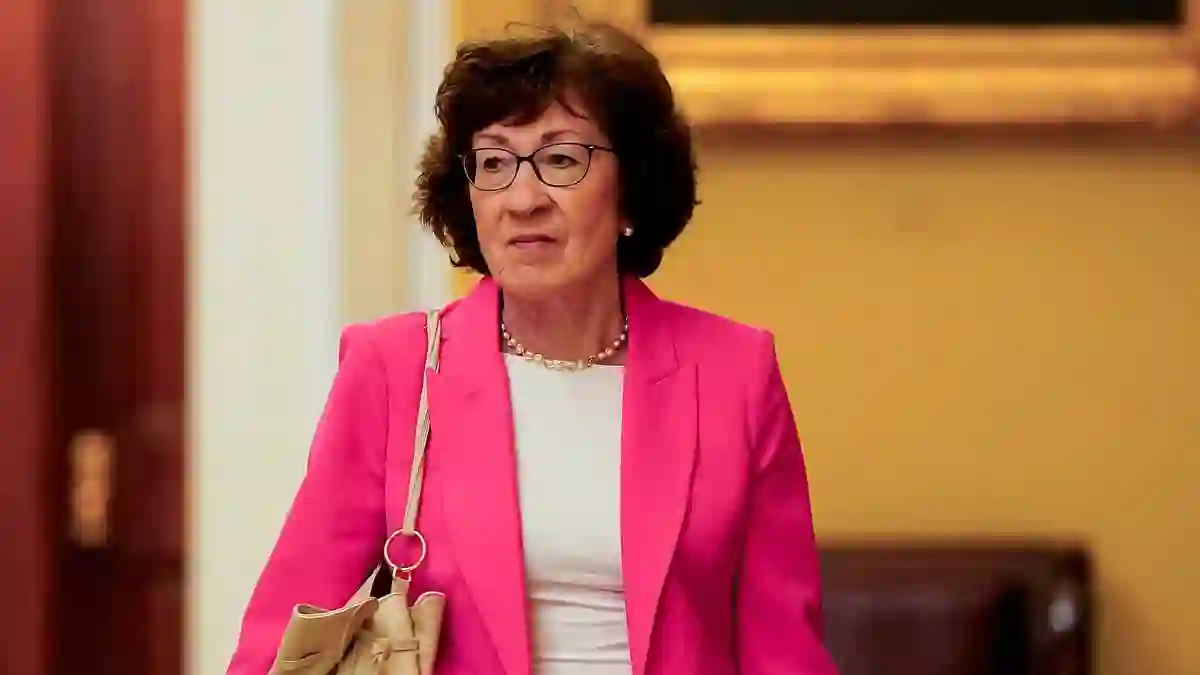Donald Trump’s spending cuts plan just cleared another hurdle in Congress.
But getting there wasn’t exactly smooth sailing, especially with members of his own party throwing up roadblocks.
Despite that, the former president secured a win with a $9.4 billion rollback in federal spending—his second major legislative success in a row.
Three Republicans Break Ranks, But It Doesn’t Stop the Bill
Not everyone in the GOP was thrilled about this one.
Senators Lisa Murkowski (Alaska), Susan Collins (Maine), and Mitch McConnell (Kentucky) broke with their party and voted against the bill.
Still, Trump’s influence proved strong, and the measure passed after Vice President JD Vance cast a rare tie-breaking vote in the Senate on Tuesday night.
This marked the first of what Republican leadership says could be a series of “rescission” packages—efforts led by the White House to reverse spending on previously approved programs.
Where the Cuts Landed: Public Broadcasting and Foreign Aid
The $9.4 billion in cuts targeted 21 specific budget items, many identified by the Department of Government Efficiency (DOGE).
Two major areas took the biggest hits:
-
Around $1.1 billion was slashed from public broadcasting funds, affecting networks like PBS and NPR.
-
Roughly $8.3 billion was pulled from USAID’s foreign social aid programs, including initiatives supporting pro-LGBTQ groups and transgender arts programs abroad.
Conservative Cheers, Moderate Concerns
Hardline conservatives in Congress welcomed the move, calling it a step toward fiscal discipline.
But moderate Republicans had some serious reservations—especially when it came to global health programs and emergency broadcasting services.
One of the more contentious cuts involved PEPFAR, the President’s Emergency Plan for AIDS Relief.
The program, launched under President George W. Bush, has been credited with saving millions of lives worldwide.
Its inclusion in the cuts raised alarm bells.
Collins Pushes Back on Health Program Cuts
Senator Susan Collins didn’t hold back. During a late June hearing with Office of Management and Budget Director Russ Vought, she said she couldn’t support cuts to global health efforts, especially PEPFAR.
“I can’t imagine why we would want to terminate that program,” Collins said plainly.
She also announced plans to try to amend the bill to protect the AIDS relief initiative.
Eventually, the White House agreed to exempt PEPFAR from the spending cuts—part of a compromise to bring hesitant Republicans back on board.
Public Broadcasting Cuts Spark Rural Concerns
Public broadcasting wasn’t safe either. While Trump made it clear he wanted PBS and NPR defunded—going as far as calling them “worse than CNN & MSDNC”—some Republicans weren’t on the same page.
Senator Mike Rounds from South Dakota voiced concern for rural areas relying on public radio.
“I can’t support this package… until we get the issue resolved with regard to these rural radio stations,” he told CNN.
Alaska senators Lisa Murkowski and Dan Sullivan also stood against the bill due to its threat to public broadcasters, which they say are essential in emergencies and isolated communities.
Trump’s Warning to Rebels: Support Me or Else
Trump didn’t leave much room for negotiation.
He warned Republicans that anyone who didn’t back the rescissions package wouldn’t get his endorsement in future elections.
On his social platform, Truth Social, he wrote:
“Any Republican that votes to allow this monstrosity to continue broadcasting will not have my support or endorsement.”
That line may have helped whip some last-minute votes into place.
What Comes Next?
Now that this first rescissions package has made it through, more cuts are likely on the horizon.
Trump and GOP leadership seem poised to continue this strategy—rolling back spending they believe is unnecessary or ideologically out of step with their base.
But if this round taught them anything, it’s that even within their own party, not everyone is on board.
Expect more internal battles, negotiations, and late-night tie-breakers in the months ahead.
